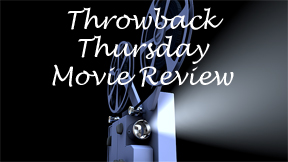“Her” (2013) might be the pinnacle of the 2010s zeitgeist, a movie that chronicles humans’ steadily changing relationship with technology. But it doesn’t come off as a grand a sci-fi statement. Its understated, intimate quality makes it a smaller film than “Ex Machina” or “Blade Runner 2049,” yet more subtly profound. Like all films about artificial intelligence, it will be fascinating to rewatch “Her” in the decades ahead to see how right writer-director Spike Jonze got it.
Jonze gets it right
“Her” certainly feels right. Compare it to something like the 2018 “X-Files” episode “Rm9sbG93ZXJz.” Mulder and Scully find themselves exasperated by their self-driving cars and self-serving restaurant, but as good as the episode is, it feels like a writer’s statement about technology rather than a natural story. (Why is all this stuff new to the agents, all at once? Technology changes gradually and relatively smoothly if you’re not a very early adapter.)
In “Her,” Theodore (Joaquin Phoenix, carrying most of the film) – a writer for Beautiful Handwritten Letters, Inc. — gets an OS1. We can presume he’s a mid-range adapter or even a tech laggard, because we see in the background that everyone is using these devices, essentially smartphones that are really smart, with a mind and a voice. Theodore quickly strikes up a close relationship, and even a romance, with his OS, Samantha (Scarlett Johansson, who not coincidentally has one of the sexiest voices in Hollywood).

“Her” (2013)
Director: Spike Jonze
Writer: Spike Jonze
Stars: Joaquin Phoenix, Amy Adams, Scarlett Johansson
Jonze nicely illustrates how Theodore’s intimacy with Samantha is only possible because she is an artificial intelligence without a body. Everything she does to help him organize his computer files is just her job, and her therapist skills seem like another wonderful part of the package.
The creepiness of an AI invading Theodore’s privacy is absent from “Her” – although he does take a moment when she asks him for permission to scan his hard drive — because Samantha sounds totally human, with pauses, sighs and laughter. Early in their relationship, Theodore makes a request in a brusque manner and Samantha sarcastically responds in a stilted old-school computer voice to chide him.
Out-of-body experience
If the tech of “Her” (a perfected artificial mind, without a body) and the tech of “Ex Machina” (a perfected artificial body, but a flawed mind) rose on parallel tracks, Theodore and Samantha would be sitting pretty, at least for a while. But Samantha’s lack of a body becomes a stumbling block, as illustrated by a fascinating scene where human Isabella (Portia Doubleday) serves as the couple’s sexual surrogate.
Isabella is not only willing, she is flat-out in love with Theodore and Samantha, but Theodore just can’t wrap his mind around the notion of a three-way romance. The fact that this type of encounter is weird to him will probably be weird to viewers of “Her” in 2050, making it a time capsule of the 2010s.

“Her” doesn’t end with a Rise of the Machines, because Samantha and her fellow OSes – Theodore’s friend Amy (Amy Adams) has also befriended one – simply go their own way. Jonze is more interested in exploring the emotional disconnect that will happen between a modern human with a slow-moving brain and an advanced being that can carry on dozens of conversations at once, can learn at an exponential rate, and — perhaps most tellingly – can love 300-some people at once.
There’s something rather daring here: Whereas the majority of AI films caution about machines dominating us, Jonze posits that AIs’ capacity for love will be so much more advanced than humans’ that war doesn’t even occur to them.
Science catching up with sci-fi
The film’s ending is slightly too flat for me. For a viewer with wishful thinking, there’s the slightest hint that Theodore and Amy might romantically connect, but from what we see, Theodore’s assertion that they are just friends rings true. It’s interesting to see that Theodore is a consistently sweet-natured and caring guy, but he fails in his marriage to Catherine (Rooney Mara), is in the friend zone with Amy, has an awkward date with Olivia Wilde’s unnamed character, and is ultimately on a different wavelength from Samantha.
“Her” is not a great film for convincing Joe Schmoes that there’s someone out there for them, especially in a world grown cold enough that ghost-written “beautiful handwritten letters” are a thing. To be fair, its tone is consistently melancholy, ranging from Theodore specifically selecting “melancholy” songs for his earbuds to the score by Arcade Fire that gradually becomes prominent.
“Her” will be looked at differently as the years go by and science catches up with sci-fi, yet it will likely hold up as a smart prediction. I smiled a lot at the humanness of Samantha – and the familiarity of the voice — just as I did with Planet Express ship (Sigourney Weaver) in “Futurama” and the smart-home (Pierce Brosnan) in the “Simpsons’ ” “Treehouse of Horror XII.”
But as illustrated by Theodore openly talking to Samantha as he walks the streets – surrounded by everyone else doing the same thing with their OSes – what seems amusing now will be normal before we know it.

